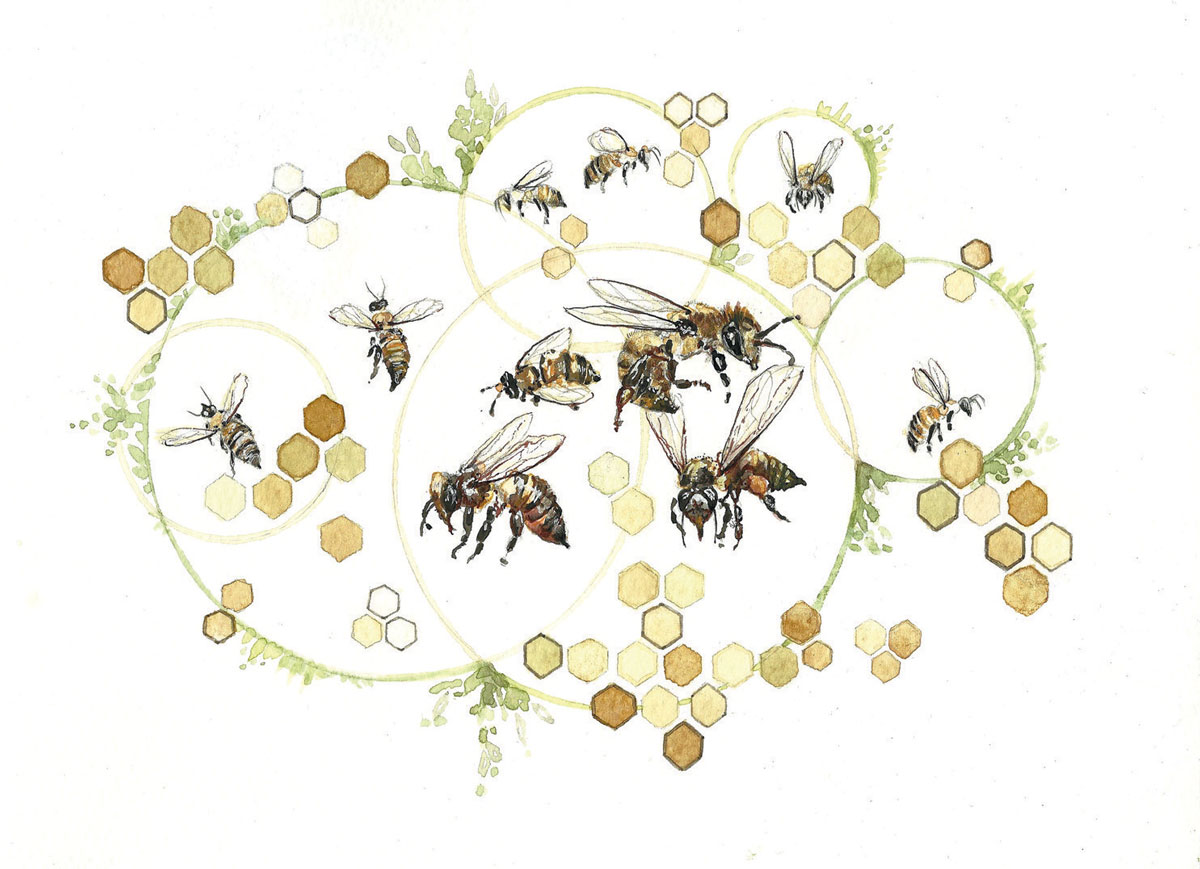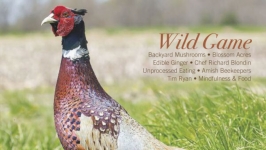Mindfulness and Our Food
While growing up on my family’s Indiana homestead, the honey bees taught me the value of community and our shared interconnectedness to the world. At 8 years old, I stood with my Mom under a large apple tree catching my first swarm of honey bees. Our hives swarmed often in those days. It was nature’s way of strengthening the hive and birthing something new. It was the mystery of the natural world in form.
During a swarm, with excitement and wonder, we would carefully and nervously place a box on the ground beneath the bees, ready for their arrival. I would observe as my Mom tapped a branch where the bees had collected, and watched with curiosity as they fell into the box, fanning at the entrance to let the others know, this is our new home. I remember how the bees calmly focused their efforts during a swarm, working together for the benefit of the hive, and realize that they taught me one of my first lessons in mindfulness.
The lessons of working with the bees from my childhood followed me to a small town outside of Tokyo, Japan, 23 years ago. There, I was struck by the abundance of farmers growing food on small plots of land tucked away between closely spaced houses. Like the bees, I witnessed a calm cultivation of the land in the midst of chaos, and immersed myself in a community that worked together for the benefit of the whole.
As I began to get to know my neighbors and shop owners that lined my street in Japan, I learned that community-supported agriculture (CSAs) and cooperatives were an organic extension of the culture. My new friends invited me into their world of seasonal food and shared the art of ancient food preservation techniques, like wild fermentation, to enhance the taste and value of the food. An ordinary visit to a nearby house revealed crocks teaming with fermented pickles, miso, and radishes of all kinds, on porches, in the hallway, and under kitchen cabinets, making the most of small living environments. I was in a vastly different culture, falling in love with my community and connecting through the shared language of food. I realized that developing relationships and bringing mindfulness into the way we source and prepare our food had health benefits beyond eating fresh, local, nutrient-dense produce.
Now through my studies and work with honey bees, my relationship to my food and the environment has deepened. I have fallen in love again with the honey bee. I learn to steward my bees in ways that increase their chances of survival. Each week I visit the hives—hat, long pants, long shirt, hair tucked up and away, senses turned on, curious about what I will learn this time as I work with the bees. They seem to wait for me to see and sense their signals, stacking on top of each other on the front and side of the hive in a delicately connected chain. Swirling, fanning, diving in, and taking off into the sky with only a dance to show them the way.
The bees and pollinators are just one part of the larger flowering world—whatever is done to one can be seen in the other. We, too, are a part of this relationship to the whole. Sweat dripping into my eyes, having slowed my breath and my body down to meet the hum of the hive, I leave feeling more alive, grounded, and present to life after being with my bees.
For me, mindfulness is about being in relationship to life around us. Like the bees, we are stewards of our land. And like my now-distant neighbors in Japan, we harvest our food on similar plots of land that connect us all. Mindfulness happens when even in the midst of chaos we expand our care for each other and the planet that supplies the materials for our existence, the people that steward our land, and the community that connects us.
As I’m writing this piece, I have a 15 year old Japanese exchange student living in my home as a transition place to her year-long study program in Kentucky. We enjoy meals together that I’ve prepared with food selected from my garden. I can’t help but wonder what will spark her curiosity and deepen her relationship to life.






